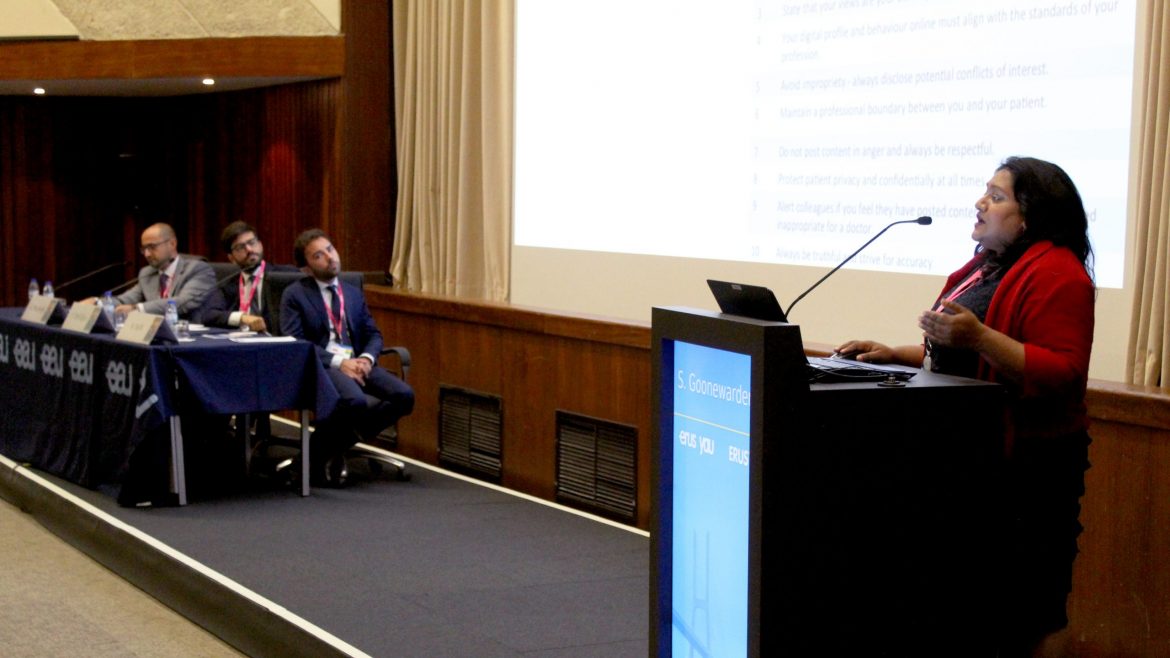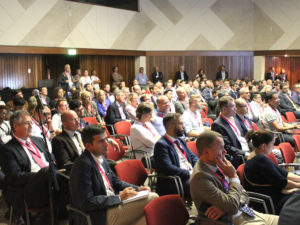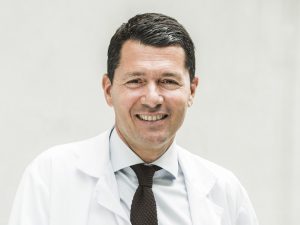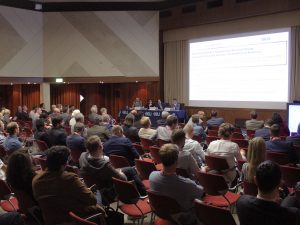For some, robotic urology is the most recent addition to the surgeon’s armamentarium, but younger urologists may have never known urology without the robot, and it might in fact be second nature. The EAU Robotic Urology Section (ERUS) wants to cater to this group specifically, offering a “Junior” scientific programme at its annual meeting to address the needs of young robotic urologists.
We spoke to Ms. Sanchia Goonewardene (GB), who is a member of the Young Academic Urologists’ (YAU) collaborative working group with the Robotic Urology Section, or YAU-ERUS. Together they are offering a five-hour “Junior ERUS-YAU Meeting” on the first day of ERUS-DRUS21, specifically addressing topics that urologists find relevant at the very start of their career. Ms. Goonewardene is both a moderator and a presenter during the meeting, examining current strategies to prevent positive surgical margins during RARP.
In addition to being a member of the YAU-ERUS group, Ms. Goonewardene is an associate member of the EAU Guidelines Panel on Chronic Pelvic pain and part of the Young Urologists Office’s Young Leaders Programme. She currently works at the Princess Alexandra Hospital in Harlow (GB).
The 18th meeting of the EAU Robotic Urology Section, in conjunction with the 13th meeting of the German Society of Robotic Urology will be held in Dusseldorf on 11-13 November 2021. The meeting offers the aforementioned Junior ERUS-YAU programme for young urologists, but also free robotic ESU Courses and a nurses programme. Special registration rates are available for medical students, residents, nurses, both for the complete programme or just the individual junior and nurse programmes.
Starting out with robotics
“The Junior ERUS-YAU meeting at ERUS-DRUS21 helps surgeons starting out with robotics, specifically by highlighting tips and tricks, and highlighting pitfalls they could potentially fall into,” explains Ms. Goonewardene. The intimate and relatively informal set-up also encourages exchanges of experience between more and less experienced surgeons. Topics include crisis management during or after robotic surgery (in a semi-live surgical setting), suggestions for improved research into robotic surgery and a look at the very latest developments in the field.
“The meeting also gives participants a research basis for what they do, so their practice is evidence based. It is also an opportunity to pick up mentors, that can mentor you in your practice.” A large part of the meeting looks at the best scientific papers published in 2020, collating evidence for robot-assisted surgery in the categories of prostate, bladder and kidney cancer. The meeting also honours the best submitted posters and videos by junior urologists.
Of particular use for young urologists according to Ms. Goonewardene is the session on how to best prepare grant applications, which will be presented from both the applicant’s and the referee’s point of view.
The value of the working group
Away from the annual ERUS Section meetings, the YAU-ERUS group is a year-round valuable resource for the young robotic urologist. Goonewardene: “The mission of the YAU-ERUS group is to bring together likeminded academic individuals, who strive towards the important goal of improving outcomes for patients. I think robotic urology in particular suits younger urologists. The most amazing pieces of work have come from the YAU, including most recently, including the world’s largest series on salvage therapy in renal cancer.”
Finally, bringing together novices and experienced robotic surgeons is another benefit of the group. “Joining YAU puts you in touch with the most amazing surgeons from around the world, giving you opportunities to improve your skills and network. Under the leadership of former chairman Alex Mottrie, current chairman Alberto Breda and recent Hans Marberger Award winner Alessandro Larcher (chair of the YAU-ERUS working group) ERUS and its Junior initiatives are flourishing.
- Online Registration for ERUS-DRUS21 is open until November 5th
- The meeting will be in-person, in accordance with all of the latest COVID-19 regulations in force in Germany.




